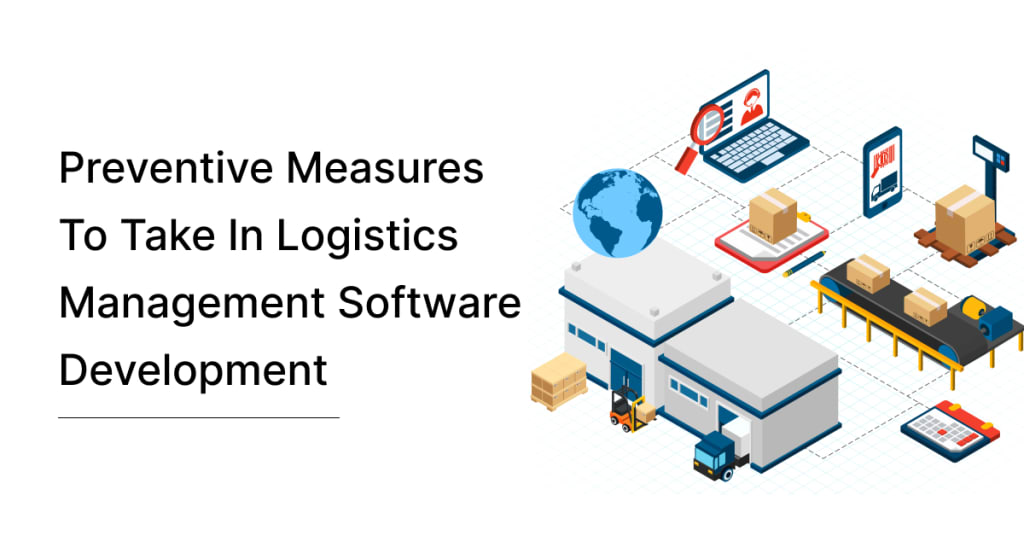
Today, the world is interconnected through several mediums. From the variety of methods, logistics software is the backbone of efficient supply chains. From managing inventory to planning routes, these programs keep everything running smoothly. However, the process of logistics management software development is not easy. It has so many challenges for a normal person. To ensure it works well, developers need to take some important steps to prevent problems before they happen.
Vital Points To Keep In Mind For Software Development
Developing a logistics management software is not an easy task. There are several risk factors involved which can lead to a bad development of your project. Here we will explore these points to ensure your logistics software is top-notch.
Understanding What's Needed
Before you begin any project, it is important to know what is needed. One of the most vital points is to discuss with the users of the software like warehouse staff and managers. By analyzing their needs, developers can ensure the software does the task it is meant to do. Moreover, by figuring out what is most important, developers can focus on things on priority. Thus, helping avoid delays and keeping the project on track.
Taking Things One Step at a Time
In the world of logistics and transportation, changes happen very fast. It is important to take an agile approach to development. Instead of trying to do everything all at once, developers work in small steps. They build a small part, get feedback, and then build the rest of the project. However, the software can adapt to changes quickly. Thus, keeping up with the fast pace of the industry.
Making Sure It Works Right
No one would ever want to develop software that does not work properly. This is because it is important to test points in the software thoroughly. Developers use automated tests to check that everything is working as it should. They also make sure to test things again and again as they make changes. Moreover, this helps catch any problems early before they become big issues.
Keeping Up with Growth
Logistics businesses can grow quickly but software must be always up-to-date. Developers make sure their software can handle more and more data as the business grows. However, they also ensure it runs quickly, even when lots of people are using it at the same time. Moreover, this helps keep everything running smoothly, no matter how big the business gets.
Keeping Things Safe
Finally, keeping data safe is crucial. Logistics software often deals with sensitive information, like customer details and financial records. Developers use encryption to keep this information safe from hackers. They also make sure only the right people can access it. Thus, they keep an eye on things to make sure nothing goes wrong.
Significance of Logistics Safety and Security
Logistics is a broad term that refers to all the activities involved in getting products from one place to another. This includes transporting goods on trucks, ships, and planes, as well as storing and distributing products once they arrive. Many different people and companies are involved in logistics, such as manufacturers, shipping companies, and warehouses.
Safety and security are very important in logistics because there are many risks involved in moving products around. It is important to make sure that everything is done safely and securely to protect people and goods.
1. Protecting Human Lives
Keeping people safe in the logistics industry is of utmost importance. This includes everyone involved in the process, from the drivers to the warehouse workers and dock personnel. Guaranteeing their safety is not only an ethical obligation but is also mandatory in many places around the world.
2. Protecting Valuable Cargo
Logistics is all about moving things from one place to another. This could include things like toys, phones, medicine, and lots of other stuff that people need. It's really important to make sure that these things stay safe while they're being moved so that nobody can steal them or damage them along the way.
3. Maintaining Supply Chain Integrity
Any problem that arises during the process of getting goods from producers to consumers can cause serious issues. Logistics safety and security measures are put in place to make sure that all products are delivered on time and in good condition so that everyone involved in the process is happy.
4. Regulatory Compliance
The transportation industry has many rules and guidelines that aim to keep people safe, protect the environment, and maintain a good reputation. Companies need to follow these rules to avoid legal trouble and to be known as trustworthy and responsible.
Technological Advancements in Logistics Software Development
Today, there is a world of logistics software working tirelessly to ensure everything runs smoothly. Recently, this software has undergone some great changes because of emerging technologies like AI, IoT, Blockchain, and Cloud Computing. Let’s take a closer look at how these innovations are changing the world of logistics.
Artificial Intelligence
Imagine software that can predict when you'll need more of your favorite products before you even realize it. That's the power of AI in logistics. By analyzing vast amounts of data, AI algorithms can forecast demand, optimize inventory levels, and even suggest the best routes for delivery trucks. This not only saves time and money but also ensures that products are always available when you need them.
IoT
Do you know how companies keep track of thousands of packages as they travel around the world? The answer lies in IoT devices like sensors and GPS trackers. These tiny gadgets collect data on everything from temperature and humidity to location and shipment status. Thus, giving companies real-time visibility into their supply chains. With IoT, logistics companies can minimize delays, prevent theft, and ensure that your packages arrive safely and on time.
Blockchain
Trust is essential in the world of logistics, especially when it comes to verifying the authenticity of products and tracking their journey from manufacturer to consumer. That's where blockchain technology comes in. By creating secure and tamper-proof digital ledgers, blockchain ensures that every step of the supply chain is transparent and traceable. This not only reduces the risk of fraud but also makes it easier to resolve disputes and ensure compliance with regulations.
Cloud Computing
Cloud computing has revolutionized the way logistics companies store, access, and share data. With cloud-based software, employees can collaborate in real time from anywhere in the world, using any device with an internet connection. This flexibility not only improves efficiency but also allows companies to scale up or down as needed without the hassle of maintaining expensive infrastructure.
Conclusion
Building logistics software isn't easy, but by following these steps, developers can make sure their software is up to the task. By understanding what's needed, taking things one step at a time, testing thoroughly, keeping up with growth, and keeping things safe, they can create software that keeps supply chains running smoothly.






Comments
There are no comments for this story
Be the first to respond and start the conversation.